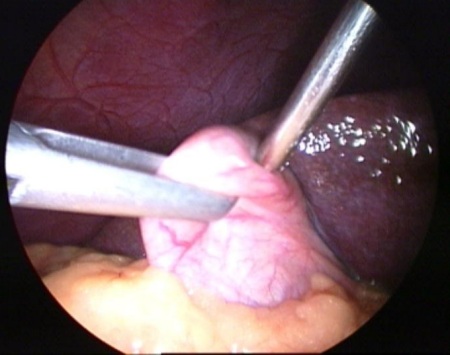 What’s that in your gallbladder? The pain you’re feeling might be due to gallbladder stones symptoms.
What’s that in your gallbladder? The pain you’re feeling might be due to gallbladder stones symptoms.
Let’s learn more about gallbladder stones symptoms.
Many people with stones don’t necessarily have symptoms. In such cases, the condition is referred to as “silent stones”. They may only become known when the person is being tested for other conditions, and don’t require treatment.
However, troubling issues can occur if a “gallbladder attack” takes place; it is one of the gallbladder stones symptoms that needs to be addressed, given the discomfort it can cause. Such attacks may take place over weeks – or months – or years. Unfortunately, after an initial attack, recurrences are likelier. These attacks can vary in length from less than thirty minutes to several hours. This manifestation of gallbladder stones symptoms includes:
- Severe and often persistent pain which rapidly increases in intensity, in the upper right or upper middle abdomen
- Feeling pain in between the shoulders
- Pain underneath the right shoulder
- Vomiting and nausea
These are the most severe symptoms; other ones may be less specific. The gallbladder is connected to the liver, via ducts (tubes). What (potentially) causes complications is when gallstones can prevent the flow of bile, by getting lodged in the bile ducts (which transport bile from the liver and the gallbladder to the small intestine). This may result in an inflamed gallbladder, and inflamed ducts. In addition, gallstones can get caught in the pancreatic duct, which can also lead to a rather painful inflammation.
Other signs to be aware of include yellow skin and whites-of-the-eyes (“jaundice”), grayish stools, fever, brownish urine, and ongoing pain.
The above warning signs are representative of gallbladder stones symptoms; after discussing them with your doctor, it’s likely that you will be sent for an ultrasound; the procedure will likely take half an hour, and can reveal blockages in the ducts. Other radiological testing can further reveal problems, and blood/liver enzyme testing may be undertaken, too, to determine if the bile ducts are not functioning properly. While an ultrasound is preferable for ease of use and the least intimidating to the patient, a magnetic resonance imaging test (an MRI) may be more accurate at verifying the cause of gallbladder stones symptoms.